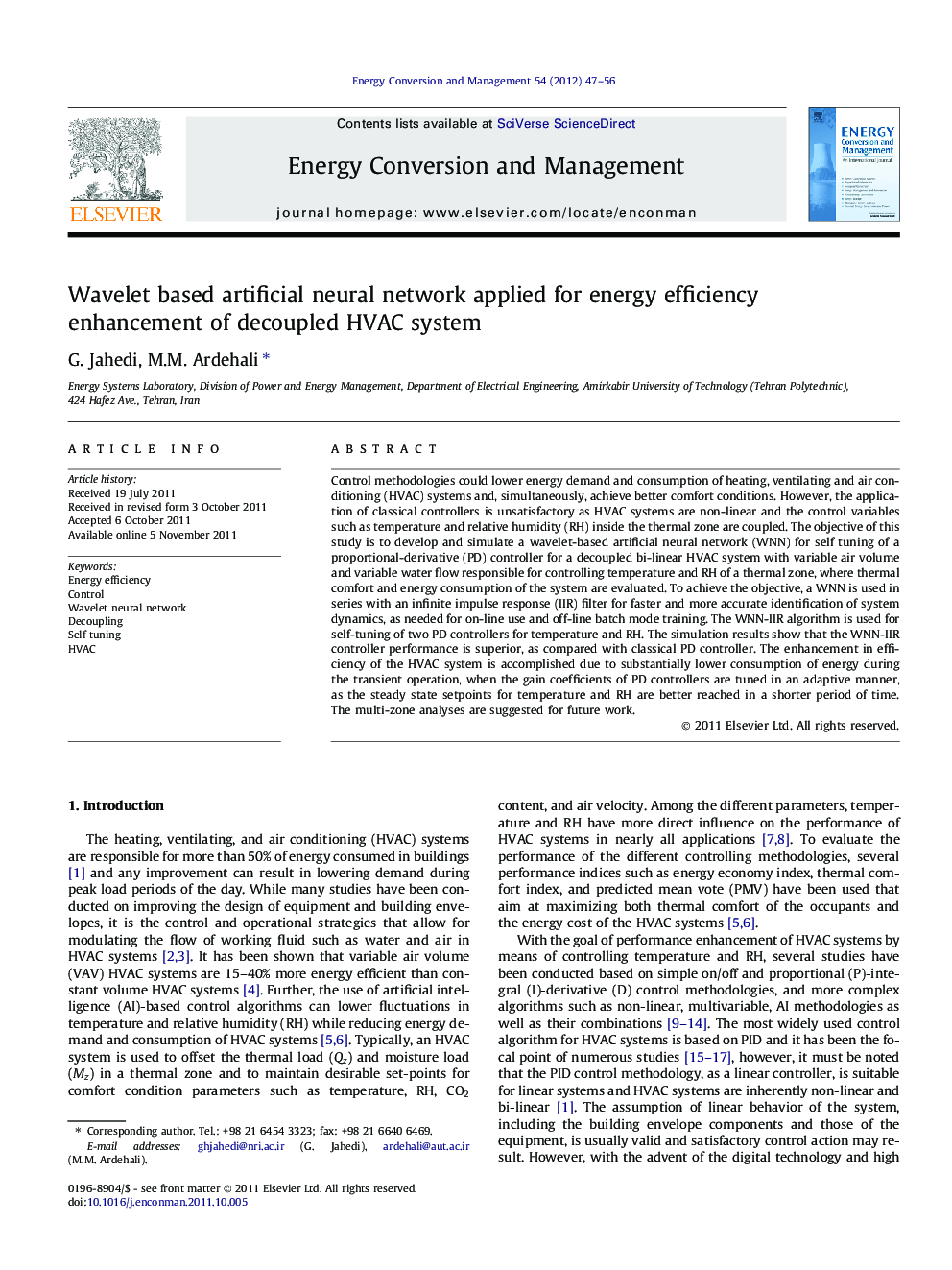| Article ID | Journal | Published Year | Pages | File Type |
|---|---|---|---|---|
| 761281 | Energy Conversion and Management | 2012 | 10 Pages |
Control methodologies could lower energy demand and consumption of heating, ventilating and air conditioning (HVAC) systems and, simultaneously, achieve better comfort conditions. However, the application of classical controllers is unsatisfactory as HVAC systems are non-linear and the control variables such as temperature and relative humidity (RH) inside the thermal zone are coupled. The objective of this study is to develop and simulate a wavelet-based artificial neural network (WNN) for self tuning of a proportional-derivative (PD) controller for a decoupled bi-linear HVAC system with variable air volume and variable water flow responsible for controlling temperature and RH of a thermal zone, where thermal comfort and energy consumption of the system are evaluated. To achieve the objective, a WNN is used in series with an infinite impulse response (IIR) filter for faster and more accurate identification of system dynamics, as needed for on-line use and off-line batch mode training. The WNN-IIR algorithm is used for self-tuning of two PD controllers for temperature and RH. The simulation results show that the WNN-IIR controller performance is superior, as compared with classical PD controller. The enhancement in efficiency of the HVAC system is accomplished due to substantially lower consumption of energy during the transient operation, when the gain coefficients of PD controllers are tuned in an adaptive manner, as the steady state setpoints for temperature and RH are better reached in a shorter period of time. The multi-zone analyses are suggested for future work.
► In HVAC systems, temperature and relative humidity are coupled and dynamic mathematical models are non-linear. ► A wavelet-based ANN is used in series with an infinite impulse response filter for self tuning of PD controller. ► Energy consumption is evaluated for a decoupled bi-linear HVAC system with variable air volume and variable water flow. ► Substantial enhancement in energy efficiency is realized, when the gain coefficients of PD controllers are tuned adaptively.
